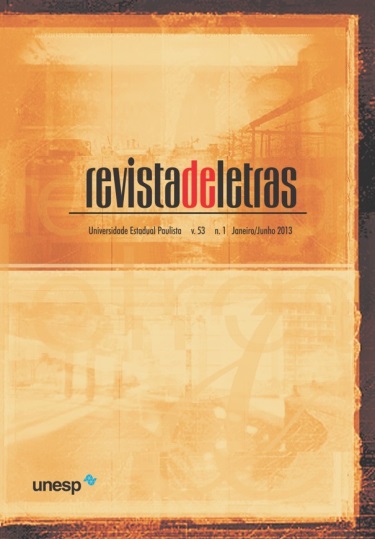A Reinterpretação Globalizada de Baz Luhrmann para O Grande Gatsby, clássico de F. Scott Fitzgerald, de 1925
Palavras-chave:
Interpretação fílmica, O grande Gatsby, Globalização, Baz Luhrmann,Resumo
Neste estudo, comparo o romance O grande Gatsby, publicado em 1925 por Francis Scott Fitzgerald, ao filme homônimo de 2013, do diretor e produtor australiano Baz Luhrmann. A análise descarta conceitos obsoletos de fidelidade, entendendo a obra cinematográfica como uma interpretação fílmica em relação dialógica com o texto literário. Proponho a apreciação do longa-metragem de Luhrmann como uma releitura que globaliza a narrativa de Fitzgerald, até então voltada para a crítica dos mitos que alicerçam o Estado-nação estadunidense. Deste modo, descrevo determinantes históricos, econômicos e culturais que envolvem o filme, a fim de problematizar as escolhas reinterpretativas do diretor, que lançam a película na onda contemporânea dos fluxos culturais globais. Também faço referência a como a interpretação fílmica transforma a ficção de Fitzgerald em uma narrativa multimídia que reposiciona a obsessão pelo sucesso financeiro no contexto mundial, suprimindo particularidades do romance a fim de se dirigir a públicos de várias partes do globo, inclusive o brasileiro.
Downloads
Publicado
Edição
Seção
Licença
Os manuscritos aceitos e publicados são de propriedade da Revista de Letras. Os originais deverão ser acompanhados de documentos de transferência de direitos autorais contendo assinatura dos autores.
É vedada a submissão integral ou parcial do manuscrito a qualquer outro periódico.
A responsabilidade do conteúdo dos artigos é exclusiva dos autores.
É vedada a tradução para outro idioma sem a autorização escrita do Editor ouvida a Comissão Editorial.

